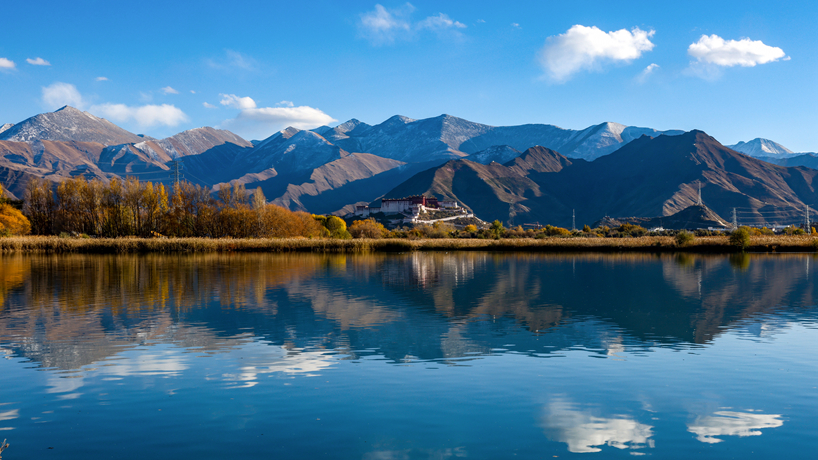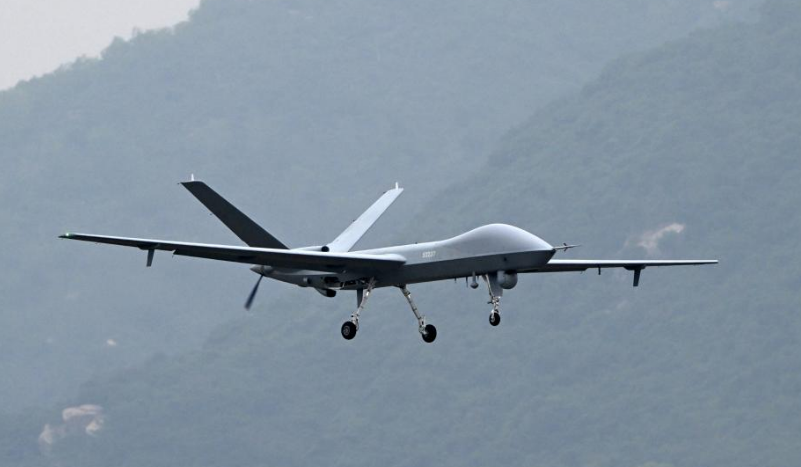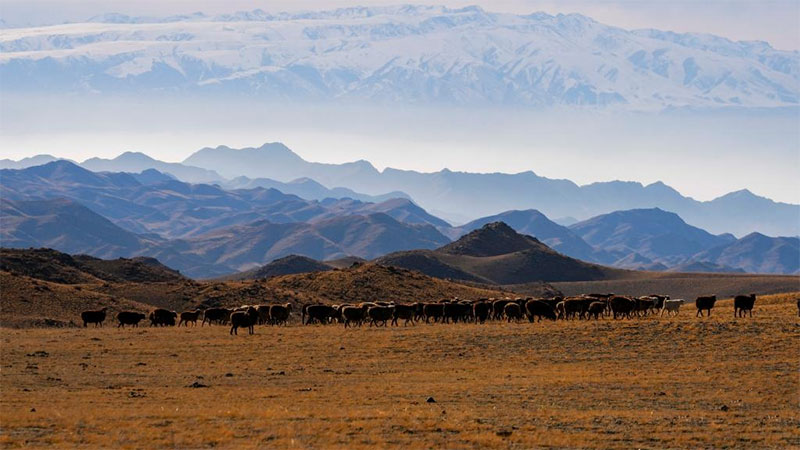Interview: Conflict-stricken countries most vulnerable, least adaptive to climate change: Red Cross official

Robert Mardini, director-general of the International Committee of Red Cross, is interviewed with Xinhua during the 27th session of the Conference of the Parties (COP27) to the United Nations Framework Convention on Climate Change in Sharm El-Sheikh, Egypt, on Nov. 8, 2022. Countries enduring conflicts are highly vulnerable to climate risks due to their limited adaptive capacity, said Mardini in a recent interview with Xinhua. (Xinhua/Sui Xiankai)
SHARM EL-SHEIKH, Egypt, Nov. 9 (Xinhua) -- Countries enduring conflicts are highly vulnerable to climate risks due to their limited adaptive capacity, said a senior Red Cross official in a recent interview with Xinhua.
"People affected by armed conflict and violence are among the most vulnerable to climate change, yet remain largely excluded from efforts to adapt to its consequences," said Robert Mardini, director-general of the International Committee of Red Cross (ICRC).
Mardini made the remarks on the sidelines of the 27th session of the Conference of the Parties (COP27) to the United Nations Framework Convention on Climate Change, currently being held in Egypt's Red Sea resort city of Sharm El-Sheikh.
The ICRC seeks to draw attention to the humanitarian consequences of climate risks and environmental degradation on conflict-affected populations, the Red Cross official told Xinhua.
He explained that the vast majority of the countries enduring armed conflict and other violence are among the world's least developed countries, describing some of them as "the most vulnerable to the climate crisis."
Among these countries are Afghanistan, Somalia, Mali, and Yemen, Mardini cited, noting that such countries are vulnerable to droughts, floods, insect plagues, and changing rainfall patterns.
"People enduring conflict are not only among the most vulnerable to the climate crisis, but they are also among those most neglected by climate actions," said the ICRC director-general.
Climate is changing everywhere, and climate shocks become more severe, "but it is people living in fragile contexts who will be most severely impacted," he emphasized.
The ICRC chief stressed that climate risks create health needs through the multiplication of respiratory problems, greater food insecurity, and the rise of certain diseases.
He called on world leaders through COP27 to live up to their commitments under the Paris Agreement to ensure that vulnerable and conflict-affected people are adequately supported to adapt to a changing climate.
They should ensure that this action is adequately supported by fit-for-purpose climate finance, he added.
"A greater proportion of climate finance must reach communities affected by conflict and violence to reduce people's double vulnerability to climate risks," said Mardini.
He lamented the current "gap" between stable countries and fragile ones in access to funding for climate action.
Adaptation in the countries affected by conflict and violence in which the ICRC works remains "underfunded and deprioritized," he pointed out.
Mardini added that conflicts disrupt the foundations of societies by affecting governance and institutions, the economy, social cohesion, and the environment, limiting people's capacity to cope with any climate shocks and changes, including heatwaves.
The ICRC official called for efforts to pull climate finance in the direction of conflict-torn communities, to mobilize donor states and other actors towards more ambitious climate action, and to increase their support for climate change adaptation in conflict-affected countries.
Climate finance should also be more evenly allocated between climate change mitigation and adaptation efforts, according to Mardini.
"Together with partner organizations, we have made recommendations in our latest paper on climate finance in fragile settings towards such action," he noted.
"We will continue to share this message with climate actors who are not present or have limited visibility into areas affected by armed conflict," Mardini said.
The ICRC, as a humanitarian organization that seeks to alleviate suffering in situations of conflict, pushes for climate finance and action in communities affected by conflict and violence.
"No one can address these challenges alone. We must work together across the humanitarian sector and beyond to strengthen climate action," he said.
"We must collectively find solutions and ensure access to adequate climate finance in challenging environments. Leaving people behind is not an option," Mardini told Xinhua.
Photos
Related Stories
- China to gradually enhance its ability to control methane emissions: envoy
- Increase of summer length mainly attributed to anthropogenic forcing
- Feature: Developed countries slammed for reluctance to provide climate finance
- Interview: China brings "hope" for fighting climate change with efforts to develop renewable energy: official
- UN official calls for action to shield children from climate disasters
Copyright © 2022 People's Daily Online. All Rights Reserved.









